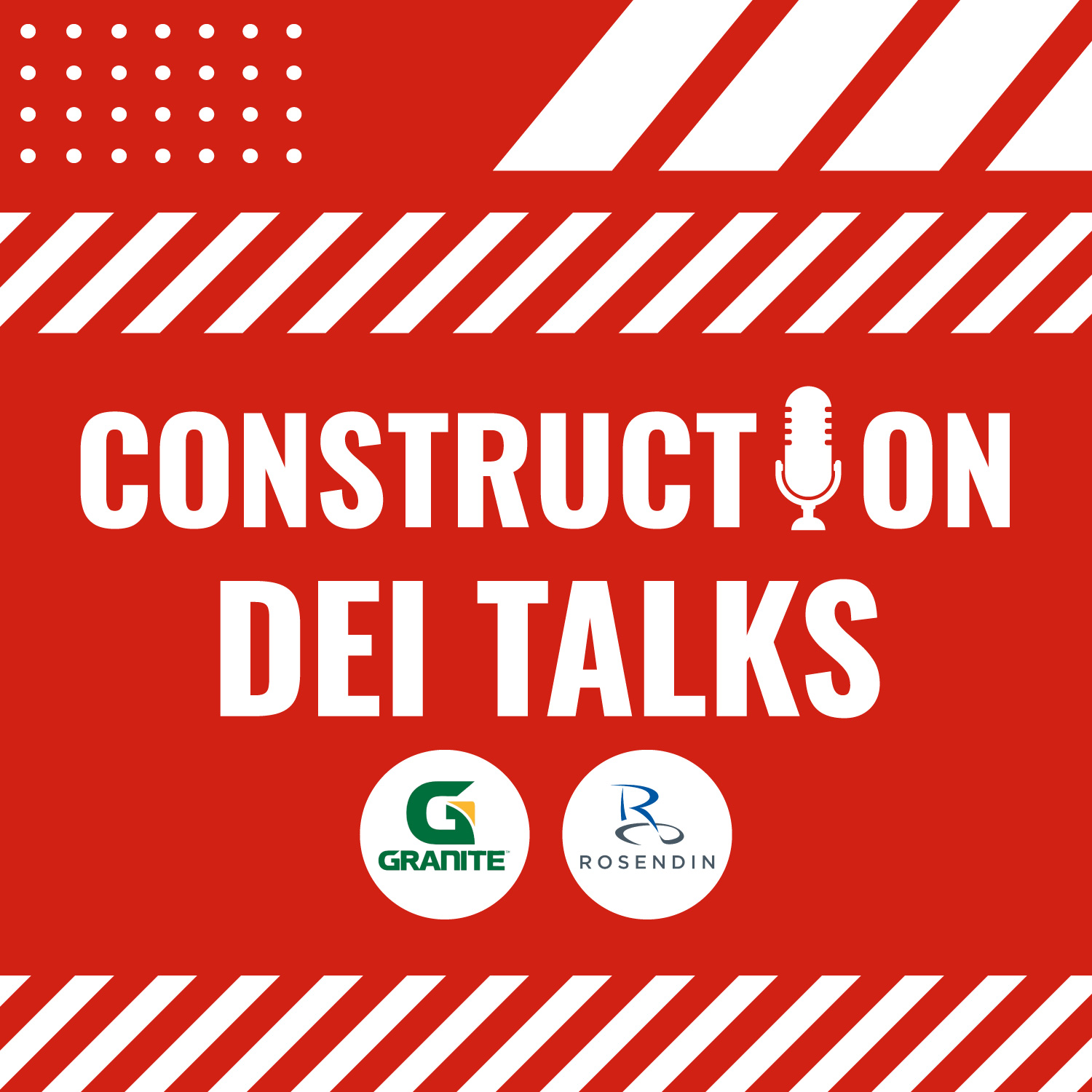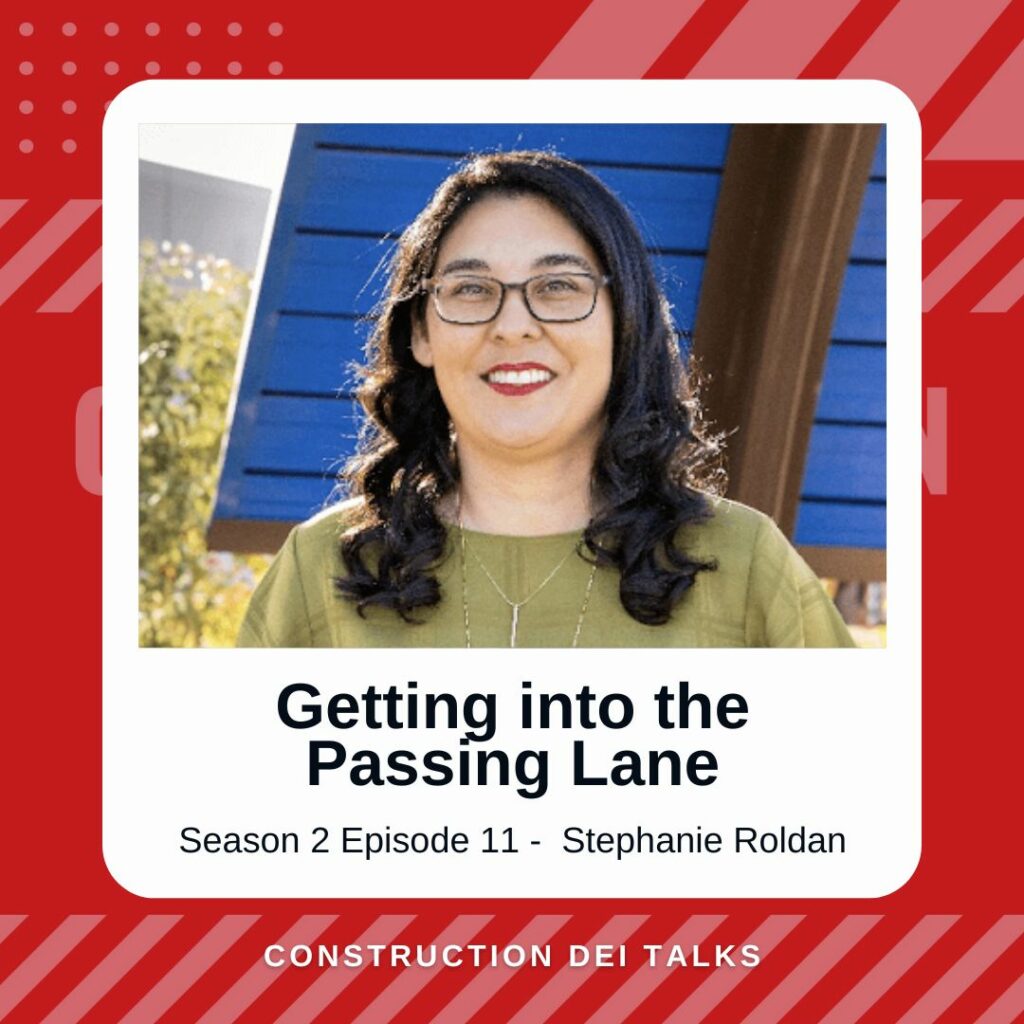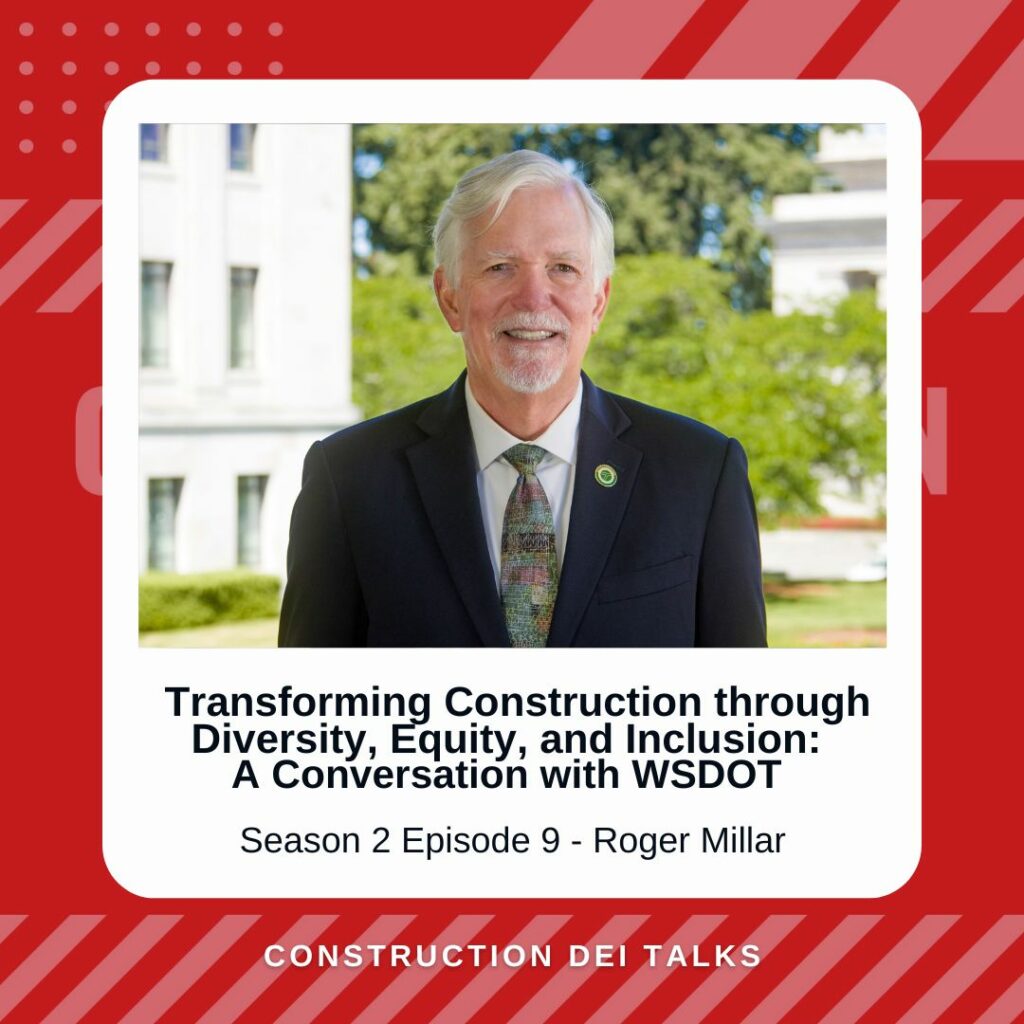Episode 1: Leadership & Accountability
Welcome to Construction DEI Talks, a podcast discussing diversity, equity and inclusion as it relates to the construction industry. Your host is Jorge Quezada, Vice President of Inclusive Diversity at Granite Construction. Stephanie Roldan, Director or Lean Culture at Rosendin and Aby Combs, Inclusive Diversity Practitioner at Granite Construction are your co-hosts. Each episode will bring new conversations with subject matter experts about how we can make the industry a more diverse and inclusive place.
Our guests for today’s episode are Kyle Larkin and Mike Greenwalt. Kyle, President and CEO of Granite, is responsible for development and implementation of company-wide strategies to ensure Granite’s growth, effectiveness and sustainability. Mike Greenwalt, CEO of Rosendin, has over 40 years of construction industry experience. He joined Rosendin in 2002 as a Division Manager in the Arizona office, where he grew the team and became Vice President of Operations. In his first year as CEO, Mike oversaw the launch of the non-profit Rosendin Foundation.
To begin, Mike recalls his initial excitement at being accepted into a selective apprenticeship program in Phoenix at 20 years old. However, the excitement quickly faded as he became the subject of prejudice from his colleagues. It was a helpless feeling, he says, and many people don’t realize what that kind of treatment can do to a person. As he ascended through his career, Mike realized the opportunity he had to make the industry a more inclusive and inviting place for everyone. Then, Kyle shares his own experience of feeling like he did not belong. His desire to bring inclusive diversity to the construction industry arose from a compilation of instances which happened over the course of his early career. Recognizing his individual value and the insight he had to offer his own company led him to seeing those traits in other people too.
Diversity is much broader than just gender and ethnicity. Construction is one of the most diverse industries, providing jobs to people of all walks of life. While job sites have always been consistently diverse, equity and inclusion is what has really been missing. In closing, Mike and Kyle share their perspectives on what leaders should be doing to move these principles forward.
Links:
Connect with Aby Combs.
Connect with Stephanie Roldan.
Connect with Jorge Quezada.
Connect with Kyle Larkin.
Connect with Mike Greenwalt.
Learn more about Construction DEI Talks on LinkedIn, Instagram and Twitter.











